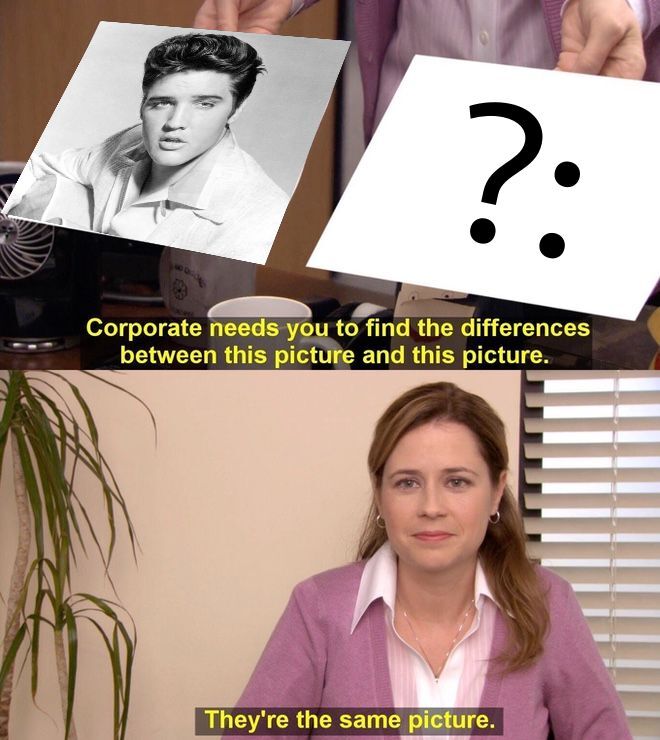I never heard it called the Elvis operator! Thanks!
Programmer Humor
Post funny things about programming here! (Or just rant about your favourite programming language.)
Rules:
- Posts must be relevant to programming, programmers, or computer science.
- No NSFW content.
- Jokes must be in good taste. No hate speech, bigotry, etc.
It's because if you turn it 90° to the right, it looks like Elvis' hair with two eyes underneath!
I saw it the other way, with the question mark as the curl of his lip.

Mfw I'm checking for null
?:)
Holy shit
It was called Elvis back when it was a smiley
Kotlin user spotted
php too
..but we don't talk about php
php doesn't exist, php can't hurt you
You have absolutely nothing
<?php
well hello there again
?>
to worry about. If PHP existed
we would have sophisticated
<?php
I trust that life has
been treating you well?
?>
methods of detecting it, and
it would pose literally no
<?php
Don't open the door. It's me.
?>
threat to anyone.aah my favorite template engine, I have seen it so long ago
Oh unfortunately these imaginary pains are those which hurt every day
(run { [email protected]?.apply { this.value === true } } == true) ?: if (([email protected] as? Boolean) != true) false else true
Nobody's assuming Groovy these days then 😂
I've been working in Jenkins pipeline for a while now.
Why the fuck is Groovy?
Well Grails didn't stick around for long, but Gradle was only available with Groovy for many years before they added Kotlin support.
I don't understand this. Small brained users rise up
On the left you have Elvis Presley, while on the right there's the so-called Elvis operator
why would you call it anything other than the ternary operator
Because it's not one. Ternary operator is A ? B : C, Elvis operator is A ?: B. The same two characters are involved, but both the syntax and effect is different.
The second one isn't valid syntax in any programming language I'm familiar with. What does it do?
It's a shorthand for writing this:
variable = if (input != null) input else default
This is equivalent:
variable = input ?: default
Huh. Neat feature. That's in C# I assume?
It's in Kotlin and some other languages. C# has it but there it's actually A ?? B.
Read further down on my other comment to understand, it's just how the operator looks
Same
